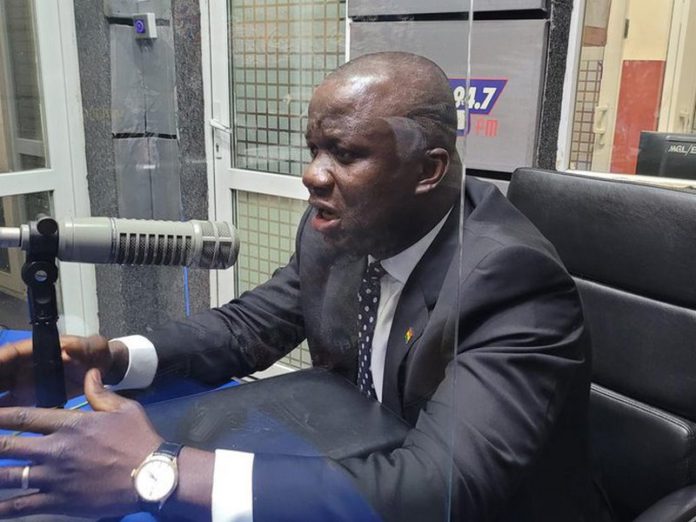The Minister for Lands and Natural Resources, Samuel Abu Jinapor, has said it will take extensive research and data finding for government to decide whether to suspend surface mining in Ghana or not.
His comments follow calls by the Media Coalition Against Galamsey for an immediate ban on all forms of small-scale and surface mining in the country as part of efforts to curb mining activities destroying the environment.
The ban, the group believes, will allow water bodies and forests to begin to be restored and find a way to bring sanity to all surface mining activities.
Reacting to the calls on Asempa FM’s Ekosii Sen, Mr Jinapor stated banning surface mining will also mean a ban on small-scale mining which will affect a lot of livelihoods.
“I am not taking an entrenched position but I will need research from Media Coalition. We carried out such a move between 2017 and 2018, what were the results we had, and what were the impacts?
“About 1,000 people are employed in licenced small-scale mining companies and the ban will mean they will be out of jobs and it will also affect the entire industry which contributes about 40% to the country’s export. So we need to do extensive work before we make any decision,” he said.
The government on December 14, 2018 lifted the ban on small-scale mining after two years.
The then Minister for Environment, Science, Technology & Innovation, Prof Kwabena Frimpong-Boateng, said that the two-year ban was being lifted because an Inter-Ministerial Committee on Illegal Mining had successfully developed a comprehensive policy framework to regularise small-scale mining across the country.
But four years later, the activities of illegal mining are causing devastation to the country’s water bodies and forest reserves and the government has admitted the fight is a difficult one.

